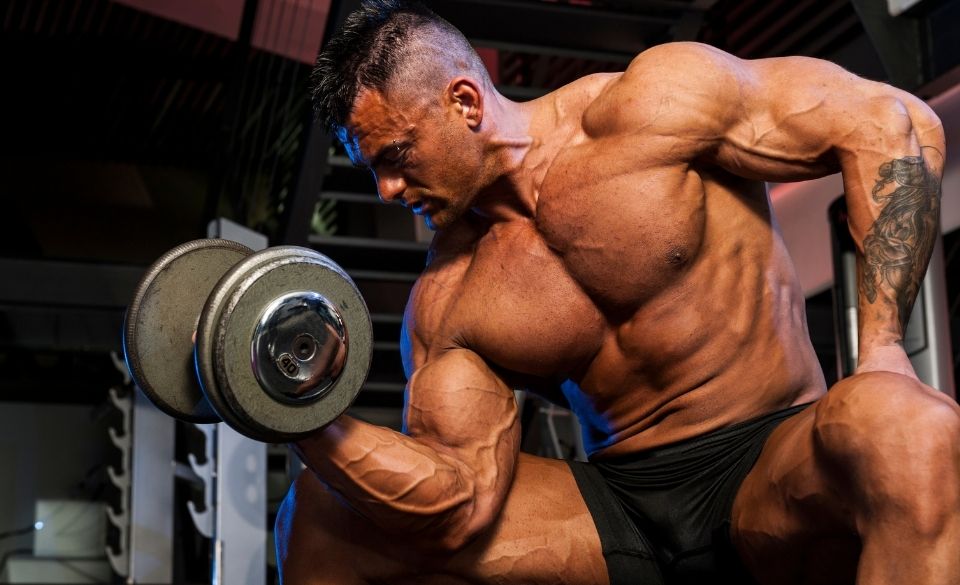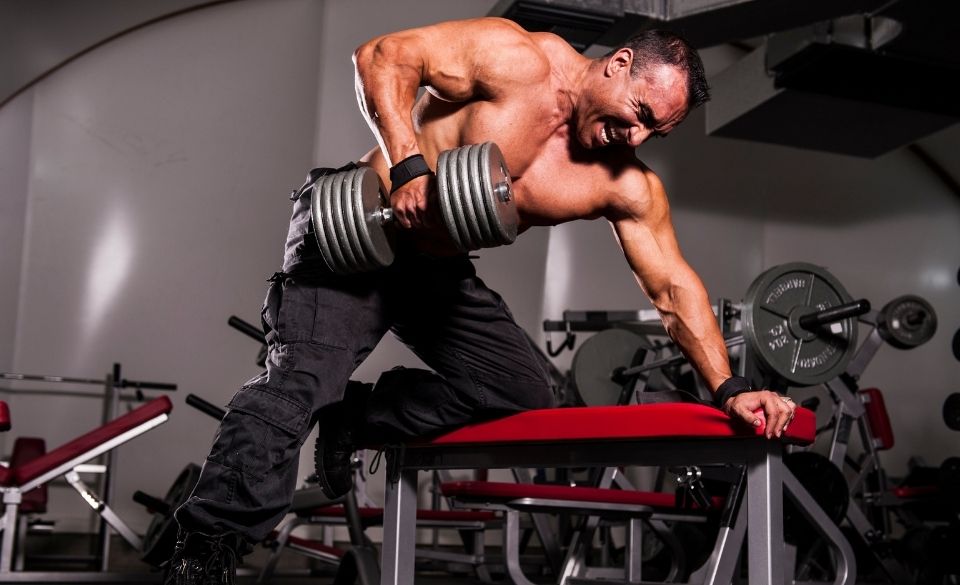
Out Of Breath When Lifting Weights – Everything You Need to Know!
Page Contents
Breathing and lifting weights may seem like two unrelated activities, but they actually have many things in common. Both require the use of your lungs and can benefit your health.
When you breathe deeply and slowly, it gives your lungs a workout and helps to improve their function. This, in turn, can help to increase your oxygen intake, which is important for overall health and any physical activity.
However, many people experience being out of breath when lifting weights, regardless of the intensity of the workout.
In this article, we discuss why you may get out of breath when lifting weights. We also explain how to breathe properly when performing any strength exercise, which can help prevent shortness of breath and other symptoms.

How To Breathe When Lifting Weights?
Breathing is an important part of lifting weights. It helps stabilize the spine and allows the muscles to work more efficiently. There are a few different ways to breathe when lifting weights, and it’s important to find the method that works best for you.
One way to breathe when lifting weights is to exhale on exertion. This means that you would exhale as you lift the weight and inhale as you lower it. This breathing technique helps keep the muscles under tension, lower heart rate, and keep the body more relaxed. It also helps prevent internal injuries, such as a hernia, blood vessel strain, and high blood pressure. Because of this, it is not recommended to inhale on exertion.
Even though it’s tempting to hold your breath while lifting weights, you shouldn’t do that. It will only cause more stress on the muscles and tense up the body, which will reduce the amount of oxygen to the muscles. Instead, start breathing out as soon as you lift the weight and breathe in as you lower them.
Below are some tips that help you lift correctly while breathing the right way.
-Practice breathing before you begin your workout. Focus on engaging your diaphragm. This way, you can ensure your body is getting enough oxygenated air.
-Take a deep breath during the eccentric phase of the lift. Generally, this is when you are lowering your weight. For example, when doing the bench press, take a deep breath when lowering the weight to your chest.
-Exhale during the concentric phase of the lift. For example, when you push the weight above you during a bench press exercise.
-Stay away from the Valsalva method when doing more than one repetition.
Dangers of Improper Breathing
When you breathe correctly during a lift, you ensure your body receives the oxygen it requires. It also helps to oxygenate the blood circulating through your muscles. So, if you hold your breath while lifting, or restrict oxygen during exertion, it will potentially increase your blood pressure.
Valsalva Maneuver
Even though holding your breath while lifting weights is frowned upon, it is often utilized by powerlifters. This method is called the Valsalva maneuver.
The Valsalva maneuver is when a powerlifter or weightlifter holds their breath on exertion for a single lift. This helps to provide core strength and helps protect the spine when lifting the weight.
It is important to note this method is only used during one extremely heavy rep and not during multiple repetitions. Even though it does cause a rise in blood pressure, it is only minor and causes no potential risks.
However, using this breathing method for anything other than a single lift can lead to increased blood pressure, which can cause the blood vessels in your eyes, head, and other places to burst. It can also cause dizziness, blurred vision, and fainting. This is why people are recommended to exhale while lifting and not hold their breath.
Unless you plan to do a one max rep, there is no reason to hold your breath when lifting a weight.
Out of Breath When Lifting Weights
If you’re out of breath when lifting weights, it’s important to take a break and catch your breath. Lifting weights puts a lot of strain on your body, and if you’re not used to it, you can easily find yourself holding your breath.
When you first start lifting weights, try lighter weights or doing fewer repetitions. This can help reduce the amount of oxygen the body needs and help you stay more relaxed. It will also allow you to hold better technique, lower your heart rate and cause your breathing to become much more relaxed and controlled.
With time and practice, you’ll build up your endurance and be able to lift weights without getting out of breath.
If you are already lifting light weights but struggling with shortness of breath, it is a sign that the lungs aren’t getting enough carbon dioxide out. In this case, it can be a warning sign that there may be something more serious going on.
If you have any concerns, speak to a doctor or certified personal trainer. They’ll be able to help you figure out if there’s an underlying cause for your shortness of breath and give you tailored advice on how to safely increase your activity level.



